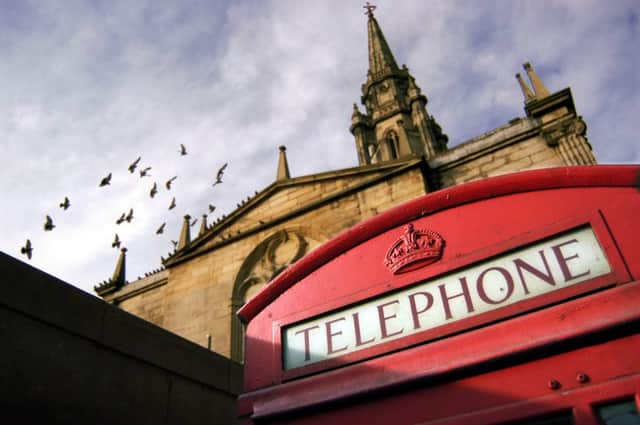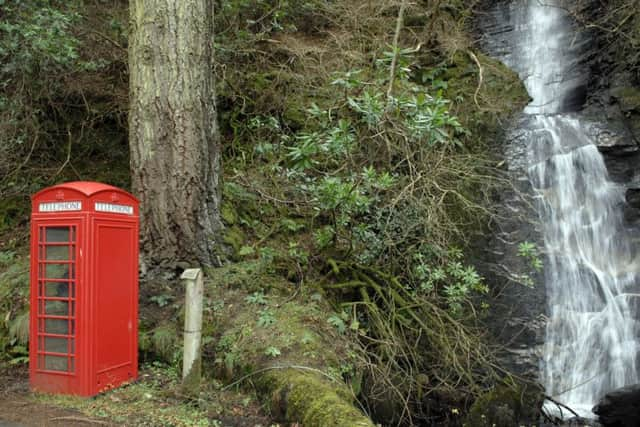Is the number finally up for hundreds of Scotland's payphones?


A major consultation is now under way by BT to cut the number of phoneboxes it operates in Scotland with hopes to remove around 1,500 – about a third – from public use.
It is a move which could save the company around £500,000 a year in maintenance costs with each phonebox costing, on average, £310 to keep in good order.
Advertisement
Hide AdAdvertisement
Hide AdBT has recorded a 90 per cent dip in use over the decade with demand rapidly diminishing as mobile phone use booms.


But for rural communities in some part of Scotland, who live with often weak mobile coverage, losing their phonebox is a serious issue.
Highland faces losing more phoneboxes than anywhere else with 156 proposed to go. Fife could lose 141, Dumfries and Galloway 113, Aberdeenshire 106 and Scottish Borders 104.
At Loch Rannoch in Highland Perthshire, a campaign is underway to save the phonebox at the rail station.
Scott Meikle, owner of the Moor of Rannoch Hotel, said that while only six people lived at Rannoch, thousands of people visited the area to enjoy the outdoors.


He said: “We are in a very remote area and we don’t get good mobile coverage.
“If someone needs to contact someone in an emergency or let someone known they are safely down from a hill, they will probably only get a very weak mobile signal and will need to use the phonebox. It is a vital service.”
BT said at least 12 calls a year should be made from a call box in order for it to remain, although various criteria will be taken into consideration including high maintenance costs, good mobile coverage and a high concentration of payphones in that area.
Advertisement
Hide AdAdvertisement
Hide AdThe number of phoneboxes in Scotland has fallen from just under 7,000 in 2003 to 4,800 today.
Despite the drop, being able to use a phonebox - which now cost a minimum of 60p - is still essential for many with 1.2million calls made in the 12 months to June this year.
Phoneboxes in Glasgow city centre are used more than anywhere else in Scotland with high rates also recorded in Edinburgh’s High Street.
At the phonebox in Pennan, Aberdeenshire, arguably Scotland’s most famous payphone after it featured in classic film Local Hero, more than 20 calls are made a month with roughly eight calls received.
Some communities have welcomed the removal of their phonebox after it becomes nothing more than a vandalised, messy meeting point.
Meanwhile, more than 150 phoneboxes have been bought by communities for £1 under the Adopt a Kiosk scheme to allow residents to bring them back into good use.
One has been turned into library, another an art gallery with others being used as storage points for everything from defibrillators to sandbags.
A spokeswoman for BT said: “BT is committed to providing a public payphone service, but with usage declining by over 90 per cent in the last decade, we’ve continued to review and remove payphones which are no longer needed.
Advertisement
Hide AdAdvertisement
Hide Ad“We understand that people still see the local phonebox as a potential lifeline, especially in an emergency situation. We have a duty to provide a network of working phone boxes where they are most needed.
“We have to balance that with the commercial reality of a network where the number of calls made is falling by 21 per cent each year and almost 70 per cent of phone boxes in Scotland don’t pay their way.“